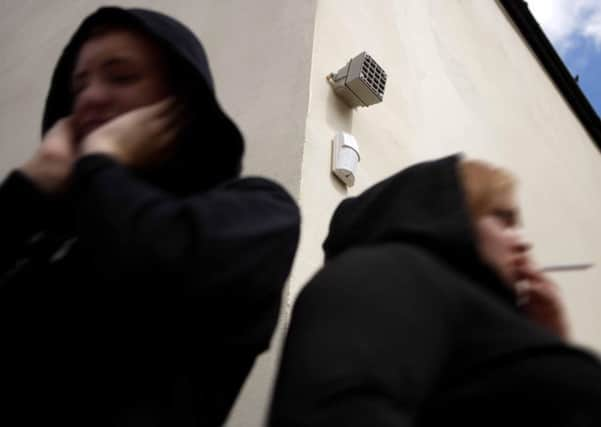Young people being treated '˜like rodents' by Mosquito devices, MSPs told


The Scottish Youth Parliament wants the devices banned, arguing they are discriminatory, breach human rights and can affect health.
The alarms have been used in a range of locations, including some train stations and by some councils.
Advertisement
Hide AdAdvertisement
Hide AdHolyrood’s Public Petitions Committee heard more than 100 have been bought privately.
Giving evidence to the committee, Scottish Youth Parliament member Kit McCarthy said: “Think of the outcry if a device was introduced that caused blanket discomfort to people of one race or sex.
“However, there is seemingly no issue with a device that targets one age group.
“Mosquito devices treat even well-behaved young people as no better than rodents.”
He added: “Mosquitoes are counterproductive. They don’t prevent anti-social behaviour, they just move it elsewhere.”
Mr McCarthy, who has autism, said for him the effect of the noise emitted is “horrific”.
The youth parliament has lodged a petition calling for a ban, backed by 163 people, which highlights research into the device.
A majority (85%) of 725 young people surveyed reported having never encountered one while of the 105 respondents who had most (83%) had seen or heard one multiple times.
Advertisement
Hide AdAdvertisement
Hide AdLess than half (41%) of those who had heard a Mosquito alarm said they had caused health effects or discomfort and the committee heard these included headaches, anxiety, tinnitus, nausea and dizziness.
Mr McCarthy said following the research the Scottish Government appeared to have changed its position on a ban, saying it would be outside the Scottish Parliament’s legislative competence as trade is reserved to Westminster.
When the youth parliament brought a previous petition in 2010, the Scottish Government said there was little indication the alarms were a widespread problem and there did not appear to be any identified long-term health risks, making it difficult to justify a legislative solution.
Mr McCarthy said the youth parliament thinks the issue should be treated as one of health or justice, which they believe will enable Holyrood to make the devices illegal.
Committee convener Johann Lamont questioned if the survey findings suggest the issue is not that important to young people.
Mr McCarthy said this is perhaps the case but cited concerns over the health impact.
Conservative David Torrance asked: “What do you say to residents who have suffered years of anti-social behaviour and a private operator puts one in and for the first time in years they actually get relief?”
Mr McCarthy said anti-social behaviour does not justify using a device which breaches rights.
Advertisement
Hide AdAdvertisement
Hide AdFellow Conservative Brian Whittle raised concerns about the lack of register for a devices and said he feels they prevent a section of the public from accessing public places.
The committee agreed to write to the Scottish Government, Police Scotland and local government umbrella body Cosla about the alarms.
Ms Lamont said: “The question there is to what extent they are across this and to what extend it is a failure of public policy that you have to put up a Mosquito device, if communities feel that they are not properly protected from anti-social behaviour.”
The committee will also write to autism organisations.